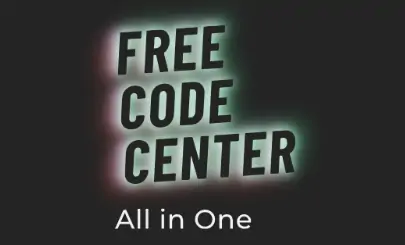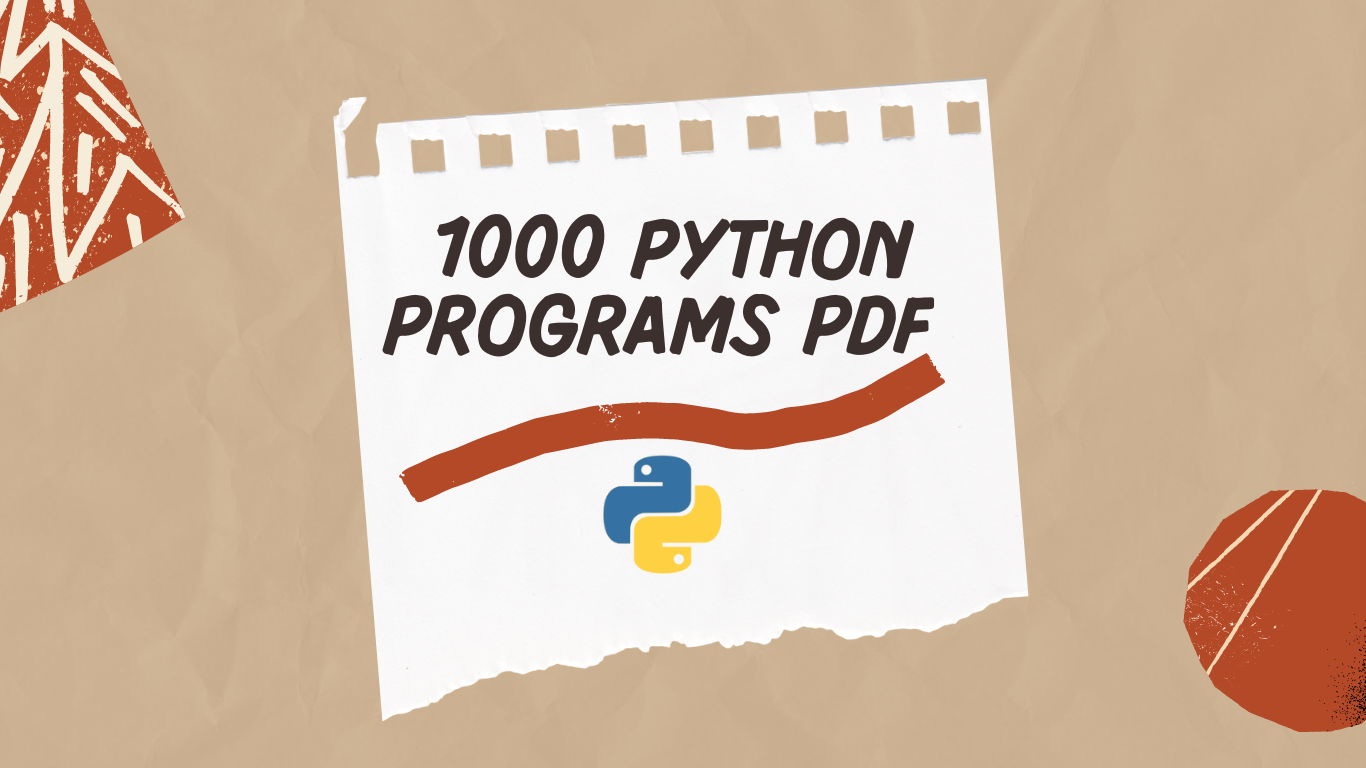Master Python with 1000 Python programs pdf A Comprehensive Guide for Every Coder || 1000 python programs pdf free download
Master Python with 1000 Python programs pdf A Comprehensive Guide for Every Coder
Python: Some language which provides simplicity and flexibility that’s the reason most of the developer loves to do coding in python. An intensive practice and a complete collection of 1000 Python exercises can prove to be helpful for you in becoming an expert while you still are struggling to get your basics clear. This is a large resource with coverage ranging from basic syntax and algorithms to machine learning, web development, etc. so nearly no stone is left unturned
In this article we will explore what a 1000 Python programs can offer, how they can save your time and effort in learning journey and why Python is still ruling the programming world.
Python: Best Language to Learn Programming through Coding Practices
- Clean syntax: The cleanest and easiest way to learn how to write Readability Python. It makes it easier to understand the code — when you end up going through a large number of examples, this is invaluable.
- Python is versatile: Python can be used to do a wide range of things — everything from web development, real-time data analysis and machine learning.
- A Thriving Community: Due to Python’s open-source framework and help from a large community, you can be sure that every problem or query you encounter will have been solved by someone else. Access to 1000 Python programs means you can learn from countless different attempts at the same problems.
Here is what you will find in the 1000 Python Programs
One millberry Python programming 1000 comment A compiled version of every major pythonDatasetrors to date. It is a one stop solution for learners of all age groups. Here are some of the subjects that these courses cover:
Basic Python Programs
Starting with the basics is crucial for anyone new to Python. Basic programs help you understand the syntax, structure, and core components of the language.
- Variables and Data Types: Simple Python exercises of declaring variables and Python basic data types (int, float, str) with easy programming concepts.
- Control Structures: Programs that use Control Structures (loops(for, while), conditionals(ifelifelse) to control the flow of a program.
- User Input and Output: Learn how to get input from users, and output text in a nice way.
These programs give you the basics to start moving towards more difficult tasks with confidence.
Data Structures and Algorithms
Getting better at programming is simply learning how to structure your data and knowing what algorithms can work on it.
- Sorting Algorithms: Sorting Algorithms – Programs that demonstrate sorting techniques, for example, bubble sort, quicksort merge sort, etc.
- Searching Algorithms: Get to know the implementation of linear search and binary search through code
- Data Structures: Learn how to use arrays, linked lists, stacks, queues, trees, and graph in Python to manage data better.
Get good at these and not only will you be a better programmer, BUT you can feel more than ready to go through coding challenges & interviews.
Object-Oriented Programming (OOP)
Hot Module Replacement is a very important concept in modern software development this skill can be used in three different flavors of programming. This is part 10 of the Python collection program to write examples of Python programs at the programming Unit.
- Defining Classes and Objects: How to make reusable objects and organize your code categorically using Javascript classes.
- Inheritance and Polymorphism: Learn how to extend functionality, and override methods.
- Encapsulation and Abstraction: Learn how to restrict the availability of data and functionalities within a class, which helps in more secure coding.
If you are someone who wants to write clean, modular and scalable code then these programs are perfect for you!
File Handling Programs
Nearly every Python project involves files in one way or another. Here are some programs which tells you how to:
- Read from and Write to Files:Understand how to write data in files, so you know how to open, edit, and save your data using python built-in file handling functions.
- Handling CSV Files: Steps for reading and processing structured data in CSV files (very common in data science use cases).
- JSON File Operations:There are a lot of batch applications which deals with JSON data since APIs and modern applications based on the rest API call deal only with JSON so these programs will make you easy to handling JSON files.
With this concept of file handling, you are all set to work with real-world data files in different formats which is one of the most prominent skills for a Python programmer.
Python Libraries for Data Science
Python is the key language in data science due to its libraries such as Pandas, NumPy, and Matplotlib. In this 1000 Python Programs collection you will:
- Data Manipulation with Pandas: Small programs that teach you how to load, clean and manipulate data sets using Panda DataFrame.
- Numerical Computations with NumPy: An insight into Python data types that you will need to get started with NumPy
- Data Visualization with Matplotlib: Work with arrays in Python & learn to perform basic arithmetic operations using the optimized numerical library NumPy.
Matplotlib is a library for creating graphs and charts. It means that you can represent your data in the graphical form, graphs or figures, through code.
Hardly, to anyone doing work in data science, working with data efficiently and creating meaningful visualizations are perhaps two of the most essential capabilities these programs offer.
Automation and Scripting
Also, Python is famous for automation of tasks. Others protect with an emphasis on eliminating repetitive tasks, including:
- Web Scraping:Basics of html tags how to use libraries like BeautifulSoup, Selenium for scraping on websites.
- System Automation: Script to automate file management, processing emails or scheduling jobs in your computer
- API Interaction: Fetch data from external services using APIs, which is definitely necessary to make your application more dynamic and tad interactive.
You are able to get more done, easier and quicker, while also learning how to perform basic automation for nearly any project whether it’s personal or professional.
Web Development Using Python
Python has proven to be a very successful tool for web development, especially when we add some aspects of two most popular web frameworks: Django and Flask. In the 1000 Python programs, you will be getting:-
- Basic Flask Apps: Create a Web Server in Just 1 Line of Code (Yes, Yes, really)gae: Handling File Uploads With Python)));;;;
- Django Projects: Create, test, and deploy full-fledged web applications written in Django features like authentication, databases & User management.
- REST APIs: A critical part of making a web application is to be able to build APIs that can connect with other services, and this course will allow you to understand how it works.
These courses are great for frontend developers to learn backend development with real-life examples building websites with Python.
Most People In Python Can Benefit from 1000 Python Programs
Having that many programs available can be intimidating, but with the right approach, you can use this as a valuable learning opportunity.
Basics First and Graduate
Just going a program is not adequate. If you want to understand what Python is really doing, change the code. You can change variables, add new features or you can break the program and see how it will work. This will give you a much better understanding for future problems you might face that are new to yourself.
Modify and Experiment with the Code
After you work through a few programs, begin to implement what you have learned towards small projects. Even if you are just building a basic calculator or website, it will enhance your learning further and give you the encouragement to tackle more complicated work.
Tackle Small Projects Using the Programs as a Foundation
After you work through a few programs, begin to implement what you have learned towards small projects. Even if you are just building a basic calculator or website, it will enhance your learning further and give you the encouragement to tackle more complicated work.
Participate in the Python Community
Feel free to ask your questions to the Python community. Secondly, there are many forums like GitHub, Stack Overflow and Reddit where you can ask questions, show your projects and contribute to open-source python projects. You will have enough material to post something everyday and discuss 1000 tiny python programs.
Conclusion
One of the most complete set of Python code collection is the 1000 python games. The collection ranges from simple syntax to more advanced algorithms, all the way trough web development, so it has a little bit of something for everyone regardless if you are just starting or have been around for a while. It helps you to work on these programs so that you will gain a bit more knowledge in what your python language can do and how you can be a problem solver thus will make you to well-versed coder in the longer run.
From simple programs to modifying the code and finally to higher end topics.
Those beginner-friendly courses do exist, but they are few and far between.
Absolutely, They feature some advanced topics e.g. machine learning with Scikit-learn and TensorFlow.
Yes, the programs demonstrate various problem-solving techniques and approaches.
Of course…the programs can be customized to your own project requirements.
Advanced Python Development with Pandas, NumPy, Matplotlib, Seaborn, Scikit-learn, and TensorFlow.

